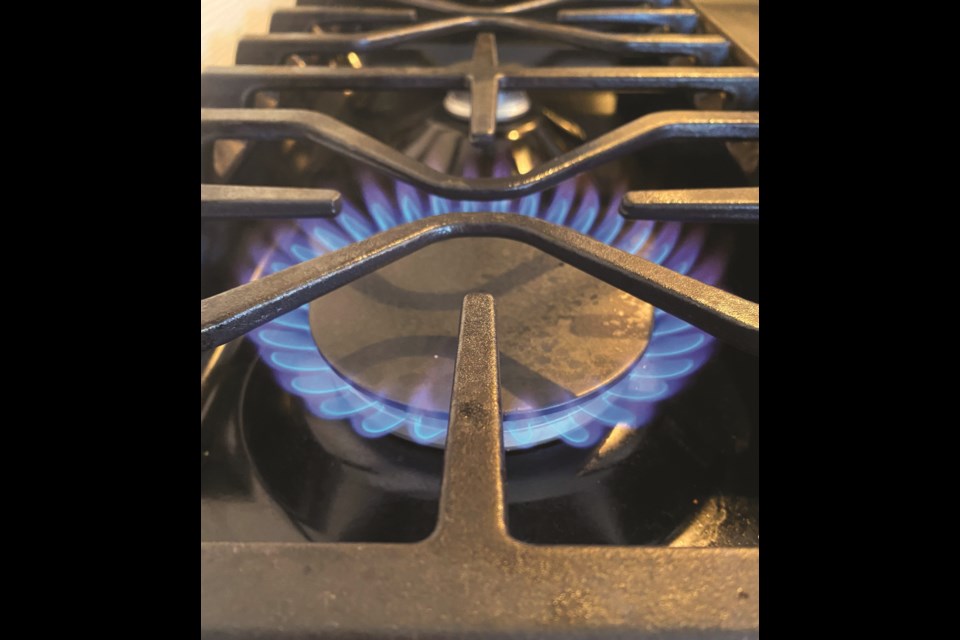Rebates, temporary price ceilings, carbon tax, monthly default rates per gigajoule, GOA credits ... it's all been a bit of a hot-mess — during a cold winter — for many utility service customers across the Lakeland and the province over the last month.
"Due to the cold weather of December and the cost of gas, your bill is significantly higher, please review before you call."
That was the message printed onto the bottom of all 2,300 natural gas bills sent out to Lac La Biche Gas Co-Op customers in January. And call they did.
"We've definitely been getting more questions than usual," says Lac La Biche Gas Co-op board chairman Lloyd Prefontaine. "We are getting asked more these days about the changing prices."
Whether its area gas co-ops, utility associations, municipal services or provincial distributors, residents have been raising some heated concerns over their recent heating bills. Most of those questions are relating to recent rates that have doubled for customers in some instances.
Prefontaine said the main reason in recent months for prices being "all over the map" was the 'perfect storm' combination of higher wholesale rates, the 2022 Carbon Tax levies and a very cold stretch of weather across northern Alberta in November and December. Even though rural gas co-ops across the province in the Federation of Alberta Gas Co-ops — serving 80 communities and more than 100,000 customers — all get the best pricing they can, those factors can still cause volatility.
The cost for a gigajoule of natural gas through the co-op between November of last year and January 1 rose almost a full dollar to around $6 per gigajoule. The average home uses about 12 gigajoules of natural gas a month. Due to the end-of-year cold snap, many customers were doubling that average. Combine that gas cost with transport costs, federal fuel charges, and fixed charges for offices administration — and the phone lines were ringing.
While most customers are familiar with the ups and downs of the industry, Prefontaine says he fully understands "sticker shock" reactions — no matter what the product is — due to the current overall economic picture.
"I think people understand. It's not like we are strangers to natural gas, I think the main population generally does — but if you get this big bill at the end of the month, and you are struggling to pay it, no matter what it is you are buying and how much you understand about it, it's still a struggle."
Office staff have been doing all they can to help customers with payments, he adds, saying that like any business, the gas co-ops have a responsibility to their customers. Referrals to social assistance programs, payment plan options and other alternatives can be put in place for those continuing to struggle, he said.
"We know it's been a challenge," said Prefontaine, explaining that all members of the co-op board of directors are also co-opcustomers. "Our staff bend over backwards to point our customers in the right direction."
Price drops for February
In the coming weeks, there is expected to be some additional relief. Prefontaine says the 'flow-through rate' or wholesale cost of natural gas is expected to drop by about three dollars a gigajoule for February.
No triggers
Recent Alberta government press statements have announced that provincial subsidy programs will remain in place to help Albertans with high gas and electricity rates. Provincial officials have announced they will keep the natural gas rebate in place for when gigajoule pricing goes above $6.50. That rebate trigger, however, has only been reached once in the last 14 years, when prices peaked at $6.53 last June. The natural gas rebate program, with the $6.50 trigger point, was put into place in 2003 by the Ralph Klein provincial government. At the time, natural gas rates were steadily averaging more than nine dollars a gigajoule. The program was scrapped six years later by the Ed Stelmach provincial government, estimating the rebate relief program has given approximately $2 billion to Alberta ratepayers.
An provincial electricity rebate of between $50 and $75 per month remains in effect through the February billing cycle. An additional $25 per month electricity rebate is also expected for March and April.
While no projects have been made on future rates for natural gas, provincial officials are pledging to keep the $6.50 trigger point in place in anticipation of any "spikes in the months ahead."
In the mean time, as winter continues to bring cooler temperatures, Dave Bliss, the manager at the Lac La Biche Gas Co-Op urges residents to monitor and properly maintain their gas-powered appliances, replace furnace filters regularly, clear fresh-air vents, and plan to fix or replace poorly insulated window or doors.
Since July of last year, the provincial government claims to have offered $500 in utility rebates to more than 1.9 Alberta homes, families and businesses.



